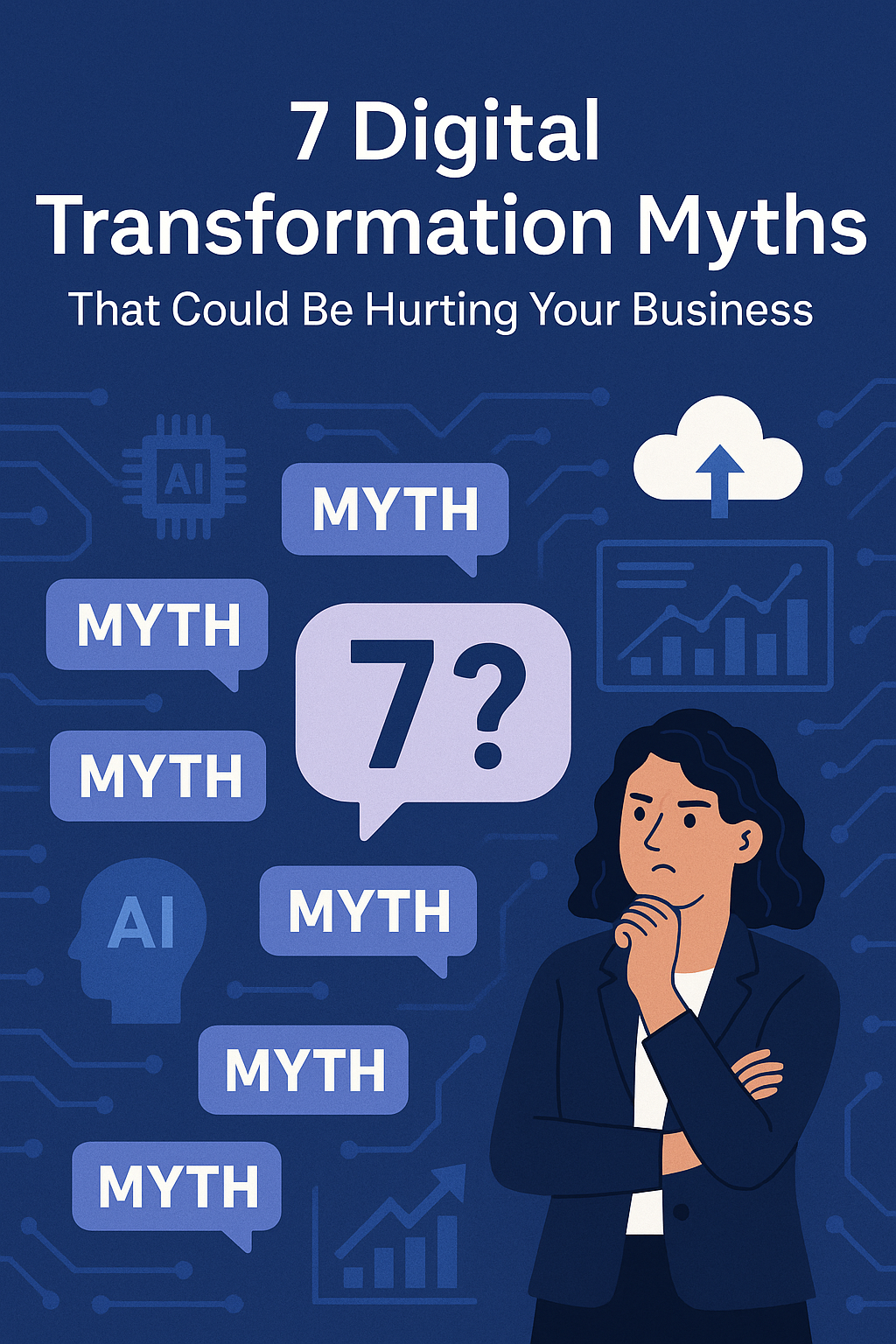MYTH 1: Digital Transformation Is About Technology Only
REALITY: While technology is a core component, digital transformation is as much about people and processes as it is about tools. Let’s understand what an actual true transformation requires: cultural shift, rethinking workflows, more innovation, and empowering teams to adapt. Without buy-in from leadership and employees, even the best technology won’t deliver results.
MYTH 2: It's Only for Big Enterprises
REALITY: Small and mid-sized businesses often assume digital transformation specialists are out of reach or unnecessary. In fact, small companies benefit more as they can be more agile, adopt new tools faster, and disrupt markets. Cloud platforms, automation & data analytics are now more affordable and scalable than ever. This makes transformation possible for businesses of any size.
MYTH 3: A One-Time Project Will Do the Job
REALITY: Digital transformation is an ongoing journey. It’s not just a single initiative with a start and end date. Businesses must continuously adapt as tech and market demands evolve. Treating digital transformation as a one-and-done project leads to stagnation and falling behind competitors who embrace continuous innovation.
MYTH 4: Legacy Systems Must Be Replaced Entirely
REALITY: Many businesses hesitate to start digital transformation because they believe they need to replace all existing systems. Not true. Modernization can be done incrementally. You can integrate newer solutions with legacy systems through APIs or microservices, extending their life and getting more value from past investments.
MYTH 5: If It's Not Broken, Don't Fix It
REALITY: Just because your current processes are functional doesn’t mean they’re efficient, scalable, or future-proof. Waiting until a system breaks can cause unnecessary downtime, security risks, or missed opportunities. Proactive transformation positions your business to grow rather than react.
MYTH 6: Digital Transformation Is an IT Department Job
REALITY: Successful digital transformation spans every department, from HR and finance to marketing and operations. It demands cross-functional collaboration and leadership support. IT is a crucial partner, but the vision, strategy, and execution must be enterprise-wide.
MYTH 7: It's Too Expensive & Risky
REALITY: While there is an upfront cost, digital transformation typically results in long-term savings and growth. It boosts efficiency, improves customer experiences, and enables data-driven decision-making. The bigger risk? Doing nothing. Businesses that fail to evolve also risk losing customers, talent, and relevance.
Persistent myths slow growth:
Believing outdated ideas can lead to stalled progress, inefficiencies, and missed opportunities
Clinging to legacy systems often creates vulnerabilities that modern technologies are designed to prevent.
Competitive pressure is rising:
Businesses that delay transformation fall behind more agile competitors leveraging automation, cloud platforms, and AI.
It is essential to make decisions right when they are needed:
Today’s industries rely on current data and insights. Outdated systems are not able to offer these things.
Customers require more these days:
Providing a smooth and personalized digital journey on every platform.
Change allows for new ideas:
By breaking old myths, companies can use new techniques, rethink how work gets done, and remain current.
Having a future-proof strategy matters:
A strategy designed for the future helps your business remain flexible and perform well as markets change.
Staying on top of these issues now is important:
It helps your company achieve long-term goals, faster changes, and more growth.
Digital transformation isn’t only about adopting the latest technologies. It requires your company to connect its goals with suitable methods, approaches, and a mindset. At Forged Concepts, we help businesses navigate the chaos and develop custom-made digital tools that are easy to scale for them.
